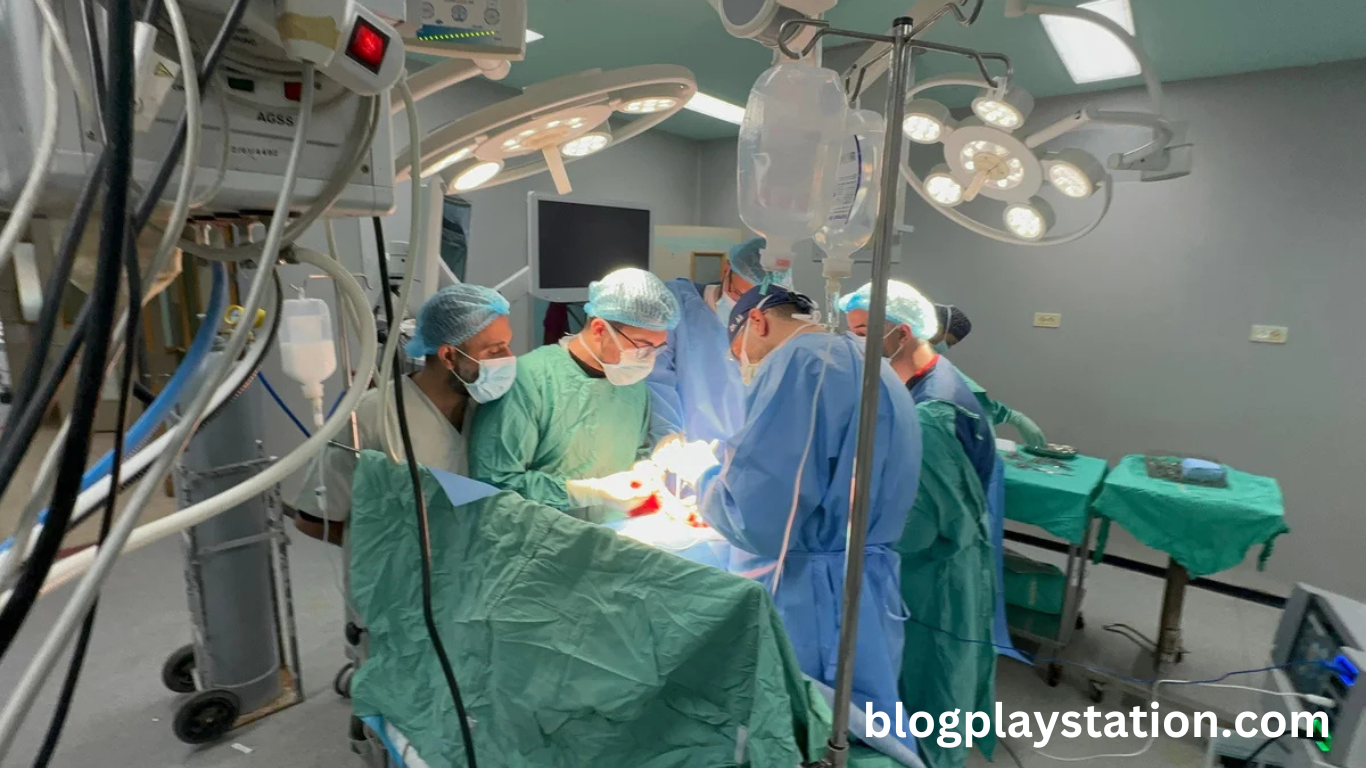A US surgeon, who recently worked in Gaza, has spoken out about the dire conditions in the region, revealing the devastating impact of the ongoing crisis. In a candid account, the surgeon describes how a shortage of medical supplies is contributing to the death toll among the wounded. Hospitals in Gaza, overwhelmed by the number of casualties, are struggling to provide basic care due to the lack of essential resources.
Overwhelmed Healthcare System
The healthcare system in Gaza has been stretched to its limits, with hospitals working around the clock to treat patients in extremely challenging circumstances. The surgeon, who chose to remain anonymous for safety reasons, highlighted the inability to provide adequate care for those suffering from severe injuries. The lack of medical supplies, such as surgical instruments, antibiotics, and blood, has made it nearly impossible to save many of the wounded.
The Human Toll of Supply Shortages
The consequences of the medical supply shortages are dire. Patients with critical injuries are being left to die because medical staff cannot perform necessary surgeries or provide basic post-operative care. The shortage of painkillers and antibiotics is further exacerbating the suffering of the injured. Many individuals, whose conditions could have been stabilized with proper treatment, are succumbing to infections or complications that could have been avoided.
International Aid Efforts and Challenges
International organizations and humanitarian groups have been working tirelessly to deliver aid to Gaza, but their efforts are often hindered by the ongoing conflict and blockade. Despite the urgent need for medical supplies, convoys of aid have faced delays and restrictions, making it difficult to reach those most in need. The surgeon emphasized the critical importance of ensuring that medical supplies and equipment are able to reach Gaza’s hospitals to prevent further deaths.
The Call for Immediate Action
The US surgeon’s account serves as a stark reminder of the human cost of the ongoing conflict in Gaza. With medical supplies running out, the situation is growing increasingly desperate. Calls for immediate international action are intensifying, urging governments and organizations to prioritize the delivery of essential medical aid to save lives. Without this support, the already overwhelmed healthcare system will continue to struggle, and more innocent lives will be lost.
Frequently Asked Questions
Why are so many Palestinians dying in Gaza?
Many Palestinians are dying due to a lack of medical supplies, including critical resources for treatment.
What is the role of international aid in Gaza?
International aid efforts are crucial but face significant delays and restrictions, preventing essential supplies from reaching hospitals.
How has the healthcare system in Gaza been affected?
Gaza’s healthcare system is overwhelmed, struggling to provide care due to shortages of equipment and medications.
What medical supplies are in shortage in Gaza?
Gaza faces shortages of surgical instruments, antibiotics, painkillers, and blood supplies needed for critical treatments.
Who is speaking out about the conditions in Gaza’s hospitals?
A US surgeon, who recently worked in Gaza, has described the dire conditions and medical shortages.
Why can’t hospitals perform necessary surgeries?
Hospitals lack basic supplies and equipment, making it impossible to perform life-saving surgeries for the injured.
How is the blockade affecting Gaza’s medical care?
The blockade restricts the flow of medical supplies into Gaza, exacerbating the already dire situation in hospitals.
What can be done to help?
Immediate action is needed to send medical aid and lift restrictions to allow critical supplies to reach Gaza.
Conclusion
The humanitarian crisis in Gaza has reached alarming levels, with medical shortages contributing to unnecessary deaths. Urgent international intervention is required to ensure that essential supplies reach hospitals. Without immediate action, more innocent lives will be lost, and the healthcare system will continue to collapse. Global efforts to provide aid must be prioritized to prevent further suffering.


